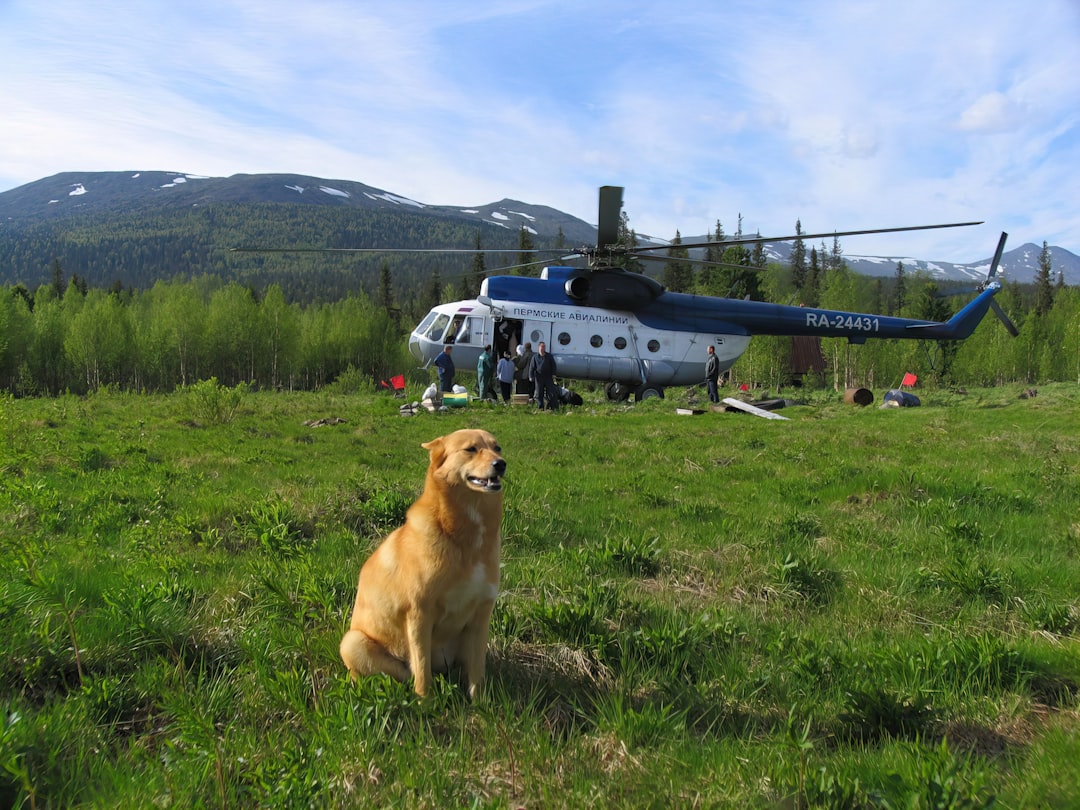Russia's iFly Seeks Funding to Finalize Airbus A330 Acquisitions Amidst Sanctions
Russia's iFly Seeks Funding to Finalize Airbus A330 Acquisitions Amidst Sanctions - iFly Airline's Acquisition Plans Amid Sanctions
Amidst the ongoing sanctions imposed on Russia, iFly Airlines is actively seeking funding to finalize its acquisition of Airbus A330 aircraft.
Despite the challenges, the airline has managed to lease additional A330 planes from a third-party lessor, demonstrating its determination to maintain and expand its fleet.
However, the sanctions have made it difficult for iFly to secure traditional financing sources, requiring the airline to explore alternative avenues to complete the Airbus A330 acquisition.
iFly Airlines has reached an agreement to purchase back certain Airbus A330 aircraft that were previously leased to the airline, showcasing its determination to maintain its fleet despite the challenges posed by sanctions.
To circumvent the restrictions on European leasing companies financing Russian airlines, iFly has secured a deal to lease two Airbus A330-300 aircraft from Voyager Aviation Holdings LLC, a third-party lessor, demonstrating its agility in navigating the complex landscape.
iFly's acquisition plans are being closely monitored by industry analysts, as the airline's ability to secure the necessary financing for the A330 purchases could set a precedent for other Russian carriers navigating the sanctions environment.
The sanctions have limited iFly's access to traditional financing sources, forcing the airline to explore alternative avenues, such as negotiations with banks, to secure the funds required to finalize the Airbus A330 acquisitions.
Despite the challenges, iFly remains resolute in its acquisition plans, underscoring the importance of the A330 fleet renewal to the airline's long-term strategy and its commitment to maintaining operational continuity amidst the sanctions.
Russia's iFly Seeks Funding to Finalize Airbus A330 Acquisitions Amidst Sanctions - Aeroflot's Airbus A330 Purchases: Navigating Sanctions
Navigating Sanctions": Amidst the challenges posed by international sanctions, Aeroflot, Russia's largest airline, has purchased eight Airbus A330 aircraft from foreign leasing companies.
The acquisition of these aircraft is seen as an effort by Aeroflot to maintain its operations and service, despite the ongoing restrictions.
Meanwhile, another Russian airline, iFly, is seeking funding to finalize its own Airbus A330 acquisitions as it navigates the sanctions landscape.
Aeroflot, Russia's largest airline, has purchased 8 Airbus A330 aircraft from foreign leasing companies as part of fulfilling contractual obligations amidst sanctions.
Aeroflot plans to re-register the 8 Airbus A330s in Russia and use them for international flights, including routes to the Maldives.
iFly, another Russian airline, has agreed to buyback Airbus A330s but is seeking additional funding to finalize the acquisitions.
The Russian government has reportedly earmarked 32 billion rubles for Aeroflot's lease buyouts, demonstrating the state's efforts to support the nation's aviation industry.
There have been reports of pro-Moldovan firms linked to 15 million dollars' worth of aircraft parts sales to Russia, as the country goes to great lengths to keep its seized fleet of airplanes operational.
Despite the EU sanctions, a narrow exception allows for the purchase of aircraft on finance leases, which Aeroflot is reportedly considering to expand its Airbus A330 wide-body fleet.
Aeroflot's CEO has announced plans to have 70% of the airline's fleet comprised of Russian-built aircraft by 2030, but the carrier still intends to purchase more foreign-leased planes to maintain its operations.
Russia's iFly Seeks Funding to Finalize Airbus A330 Acquisitions Amidst Sanctions - Circumventing Sanctions: Russia's Access to Aircraft Parts
As of April 22, 2024, reports indicate that Russia has been actively finding ways to circumvent the sanctions imposed on it following the invasion of Ukraine.
Despite the sanctions, millions of dollars worth of aircraft parts from prominent companies like Boeing and Airbus have been delivered to Russia, allowing its airlines to maintain a limited level of air travel operations.
The Russian government has also initiated measures to dismantle parts of its aircraft fleet, prioritizing the ability to maintain two-thirds of the foreign fleet until 2025.
In response, several countries have taken steps to tighten sanctions, targeting individuals and companies involved in the illicit supply of aircraft parts to Russia.
Russia has received over $14 million worth of illegal aircraft parts despite global sanctions imposed since the invasion of Ukraine, enabling Russian airlines to maintain limited air travel operations.
Some Russian airlines, including Rossiya Airlines, have obtained millions of US-made aircraft parts through circumvention of sanctions, including acquiring parts from friendly countries like the UAE, China, and Turkey.
Moldovan companies have brokered aircraft parts worth $15 million to Russian airlines, despite EU sanctions targeting the import of such goods to Russia.
To mitigate the impact of sanctions, Russia has been dismantling its aircraft fleet, prioritizing the ability to maintain two-thirds of its foreign-made fleet until The US Department of Commerce has ramped up efforts to target individuals and companies involved in the illicit supply of aircraft parts to Russia, as part of the broader sanctions regime.
The European Union has also implemented restrictions aimed at preventing the circumvention of sanctions, including targeting entities involved in facilitating the import of prohibited goods and services to Russia.
Russia has been utilizing "parallel imports" to obtain aircraft parts, which involves acquiring components from countries not subject to the same sanctions as the original manufacturers.
In response to Russia's attempts to circumvent sanctions, the US has imposed additional measures, including limiting Russia's access to weapons, computer chips, aircraft parts, and other critical products.
Russia's iFly Seeks Funding to Finalize Airbus A330 Acquisitions Amidst Sanctions - Leasing Companies Suffer Losses as Planes Remain Grounded in Russia
The ongoing conflict between Russia and Ukraine has had significant financial implications for aircraft leasing companies.
Hundreds of leased planes, worth billions of dollars, remain grounded in Russia due to sanctions imposed in response to the invasion.
Leasing firms are facing substantial losses as they struggle to recall these aircraft, leading to legal battles with insurers over liability.
Meanwhile, the Russian government has implemented measures to keep the foreign-leased planes flying domestically, further complicating the situation for the affected companies.
Over 515 leased jets, worth billions of dollars, are currently stuck in Russia, causing significant losses for leasing companies.
The Russian government has changed the law to allow foreign jets to be registered in Russia, enabling them to continue flying domestic routes.
Leasing companies have secured settlements with Russia totaling over $25 billion for around a quarter of the roughly 400 aircraft stuck in the country.
Insurers are facing claims from lessors, with some seeking billions of dollars in compensation, including CDB Aviation, which is seeking $8 billion.
The issue is estimated to affect around $12 billion worth of leased aircraft stuck in Russia, with 515 jets based in Russia leased by foreign firms.
Lessors are struggling to recall the planes, and the situation has triggered a legal battle between leasing companies and their insurers over who should be liable for billions of dollars in costs.
The Russian government's new law makes it harder for foreign companies to repossess leased aircraft, allowing foreign-leased aircraft to keep flying domestic routes in Russia.
Hundreds of commercial aircraft owned by Western companies are currently stranded in Russia, where they had been leased, since new sanctions came into force.
The situation has led to a 'mega trial' over the planes stranded in Russia, with aircraft leasing firms suing dozens of insurers for around $8 billion.
Russia's iFly Seeks Funding to Finalize Airbus A330 Acquisitions Amidst Sanctions - Rainy Day Fund Support: Russia's Aviation Sector Resilience
The Russian government has taken measures to support its aviation sector amidst Western sanctions, including allocating over 12 billion in state subsidies and loans.
Despite the challenges, Russia's civil aviation industry has managed to remain operational, with domestic air travel continuing.
The country has also established a 100 billion ruble fund to support the domestic industry, aiming to make flights more affordable and scale up aircraft production.
Russia's iFly airline is seeking funding to finalize the acquisition of Airbus A330 planes, as the sanctions have made it difficult for Russian airlines to access financing and acquire new aircraft.
The "Rainy Day Fund" could potentially provide support to the aviation sector during this crisis, but its precise role remains to be seen.
Russia has channeled over $12 billion in state subsidies and loans to bolster its aviation sector since Western sanctions were imposed due to the invasion of Ukraine.
Despite the sanctions, Russia's civil aviation industry has defied predictions and continued to operate domestic air travel, showcasing the sector's resilience.
To keep its seized aircraft fleet airborne, Russia has resorted to "cannibalizing" planes and sourcing spare parts from the black market.
The Russian government has established a 100 billion ruble fund to support the domestic aviation industry, aiming to make flights more affordable and scale up aircraft production.
iFly, a Russian airline, is actively seeking funding to finalize the acquisition of several Airbus A330 planes, as the sanctions have made it challenging for Russian airlines to access financing and acquire new aircraft.
The "Rainy Day Fund" is a state-backed reserve fund that could potentially provide financial support to Russia's aviation sector during times of crisis, such as the current sanctions.
The utilization of the "Rainy Day Fund" to aid iFly and the broader aviation industry remains to be seen, but it could play a crucial role in mitigating the impact of the sanctions.
Russia's aviation sector has demonstrated its ability to adapt and maintain operations, even in the face of significant external pressures, a testament to the industry's ingenuity and determination.
The sanctions have forced Russia to explore alternative supply chains and financing mechanisms to sustain its aviation sector, highlighting the industry's adaptability and resourcefulness.
The ongoing efforts to support the aviation industry, including the "Rainy Day Fund," reflect the strategic importance of the sector to Russia's economic and transportation infrastructure.
Russia's iFly Seeks Funding to Finalize Airbus A330 Acquisitions Amidst Sanctions - Airbus Halts Services and Parts Supply to Russian Carriers
Airbus has halted the supply of aircraft parts and services to Russian airlines in response to international sanctions.
The company has suspended support services, supply of spare parts, and operations of its Engineering Centre in Russia, which employed 200 Russian engineers.
This move is expected to have a significant impact on Russian airlines, with around 70% of carriers' aircraft affected and over two-thirds of domestic flights impacted.
Airbus has over 200 employees at its engineering center in Russia, all of whom have had their operations suspended as part of the sanctions.
The company's decision affects around 70% of the aircraft operated by Russian airlines, which rely heavily on Airbus planes to serve their domestic routes.
Airbus' move comes just a few weeks after Boeing took similar action, further crippling Russia's ability to maintain its commercial aviation fleet.
Without access to genuine Airbus parts, Russian carriers are being forced to cannibalize grounded aircraft and resort to the black market to keep some planes flying.
The sanctions target not just the supply of physical parts but also Airbus' technical support and maintenance services, which are essential for keeping complex aircraft operational.
Industry experts estimate that over two-thirds of domestic flights within Russia will be impacted by the Airbus suspension, severely disrupting air travel for millions of passengers.
While Russia has domestic aircraft manufacturing capabilities, its ability to produce advanced avionics and components on par with Airbus and Boeing is limited.
The long-term viability of Russia's aviation sector is now in question, as the country faces challenges in acquiring new aircraft and maintaining its existing fleet.
Airbus' decision reflects the company's commitment to upholding international sanctions, even at the cost of losing a significant market for its products.
The sanctions have forced Russian airlines to explore alternative suppliers, potentially increasing their reliance on less reliable or more costly sources of parts and services.
The impact of the Airbus suspension extends beyond just the airlines, as it also affects the wider Russian aerospace industry and its ability to modernize its aviation infrastructure.


